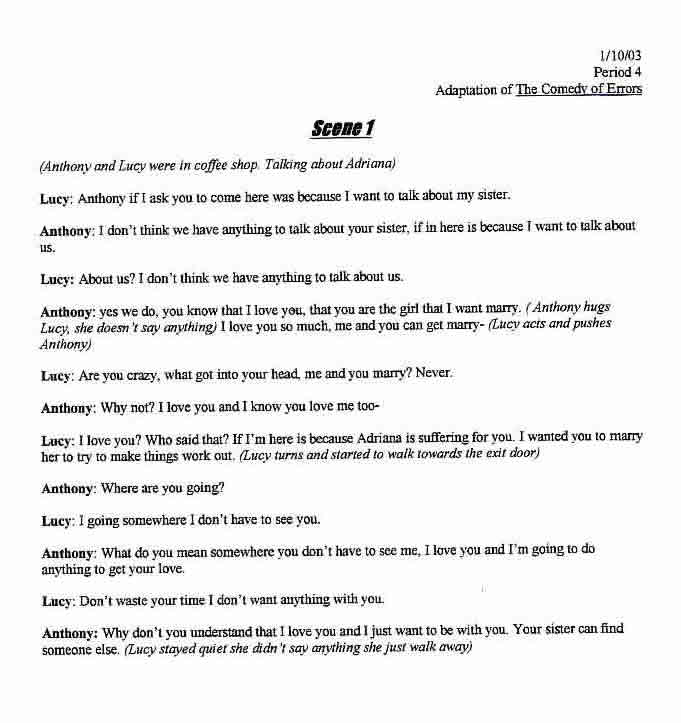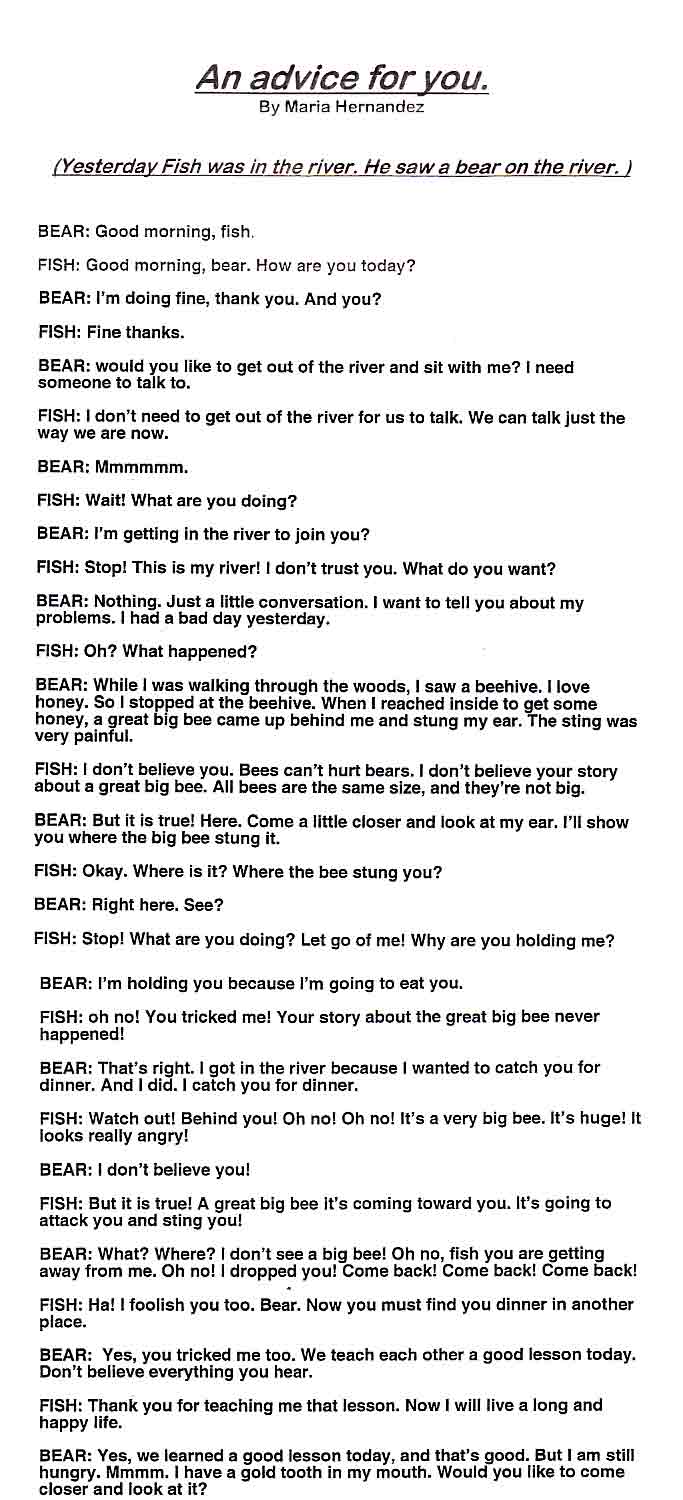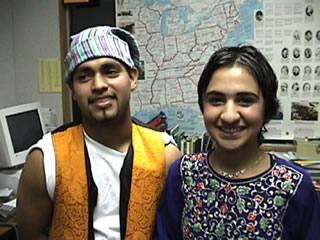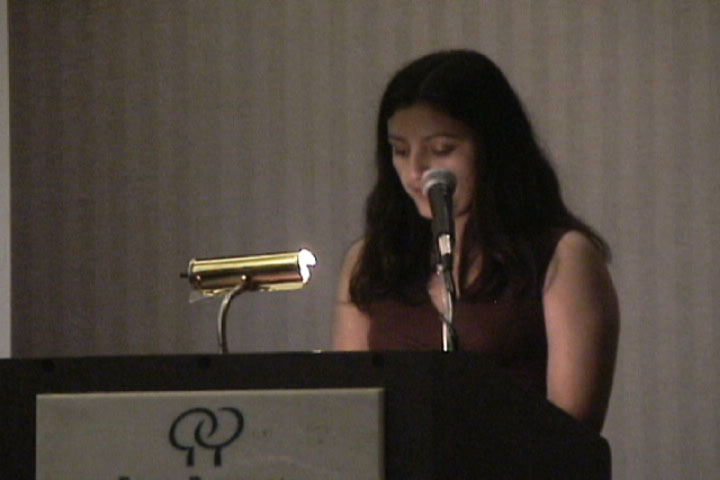 Student
Work
Student
Work
In my class, the majority of student work
is the performance itself. One piece of student work that represents the kind of writing that
students generate after our production has wrapped is the
piece: “Lucy
and Anthony.” That was based on one of the scenes
in Comedy of Errors. I had the playwright as a student several times;
the first year, she
was a no-show a lot of times, then when she was in my acting class,
she’d come, but she’d have to leave and go with a friend
into the lobby because she’d be crying so much. It
got to the point where by the last year, she was coming to school,
trying hard, she was really doing an incredible job. She
memorized about 2-3 different roles in the play, so much so that
when certain people were absent for a day, she could step in and
do their roles, the lines and the blocking. She became
this more helpful, confident person, and was able to graduate.
When we presented our work at
the Urban Sites conference, she performed her piece. We
were rehearsing in the lobby of the hotel, and she was able to
do it. Their
performance jumped quite a bit, they were able to incorporate
audience response and it kind of goosed their performance, I
saw some new line readings. But that was her update of the scene
from Comedy of Errors. When
I think about the sense of community and what that does for kids,
I think that that’s part of what kept her coming to school.
Her home life was hard, but she was able to find some kind
of connection and engagement in school, especially in the play.
Of necessity, you have to bond, everyone has to work
together so much. If
you screw up in an English class, it’s just you. It’s
easy, you fail, You’re not a schoolboy, or
schoolgirl, and it’s “cool.” But if you
screw up in a play, you’re screwing everybody
up in the room, and it’s public, too. So I think
the task becomes much more legitimate.

I also think about
Maria, who played the abbess in Comedy of Errors . I
just love the piece she wrote, it’s like an Aesop’s
fable. She calls it "An Advice for You," which reflects her Spanish-speaking
background – Un
consejo. She’s a highly evolved soul. I first met her in
Types of Lit. In that long monologue at the end of the play she
did so powerfully. She wrote the piece, and she said “I
tell my little sister stories to put her to sleep at night, so
I thought, I’ll write one for her. What would she like?” So
I think about how that story came to be, and then I think about
how good it is. I just remember it as being really good.



